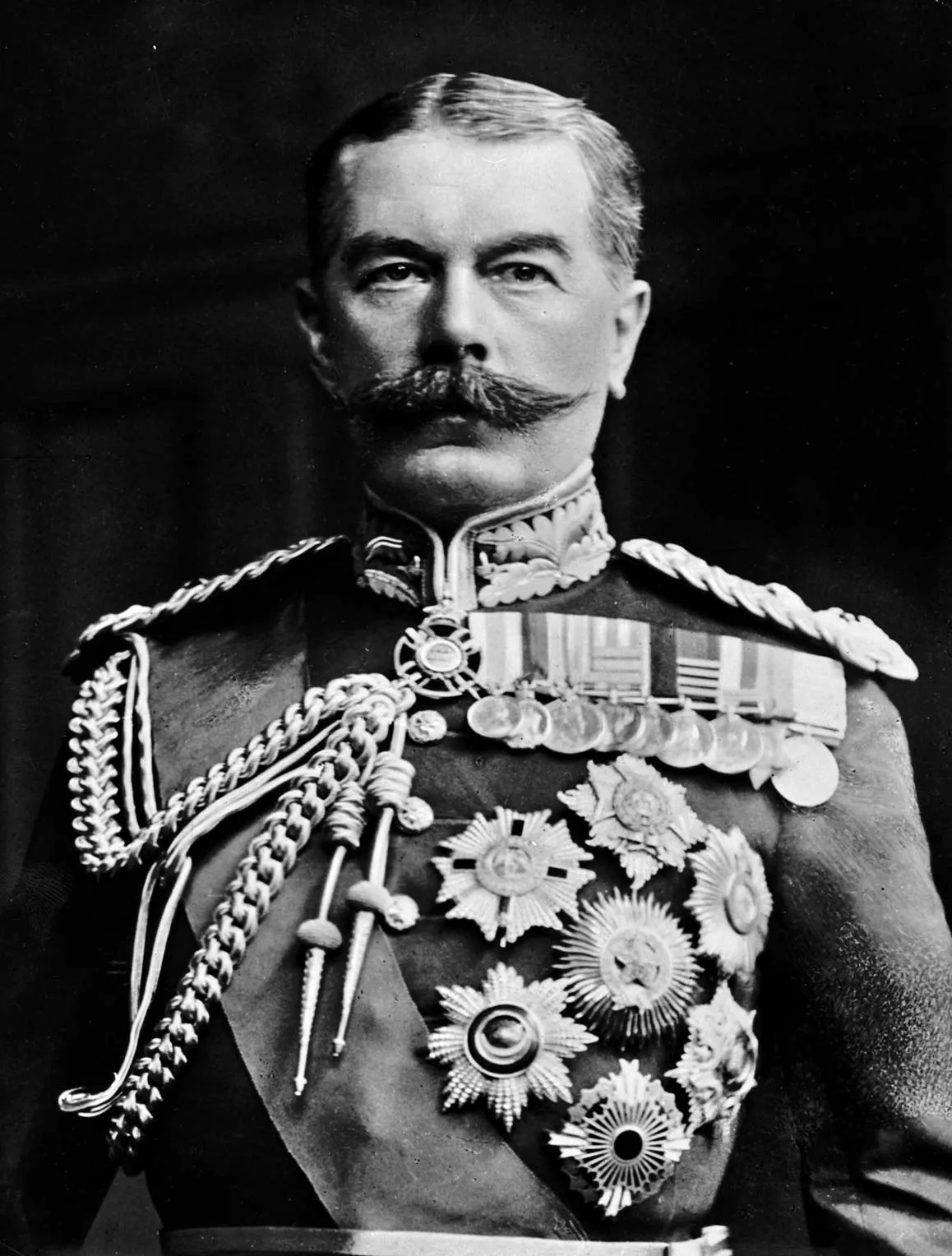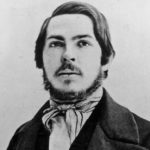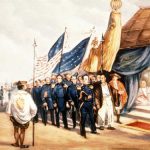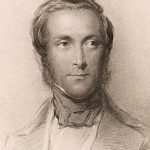Horatio Herbert Kitchener was born in 1850. At school in Switzerland he learned perfect French, and later went to Palestine where he picked up near-perfect Arabic. After military college and commissioning he got to Egypt (where his knowledge of languages was useful for a junior officer).
The British were occupying Egypt in 1882, but this was the time of the Mahdi, an almost mythical religious and military leader who caused consternation in Britain by the brilliance of his strategy, and the blind faith in him showed by his followers.
They occupied the city of Khartoum, and Kitchener went with General Wolseley’s army to try to re-take it (1885). They failed, as we know, and General Gordon, a religious fanatic as crazy as the Mahdi, had his head cut off by the Mahdist supporters.
By 1889 Kitchener was Commander-in-Chief (Sirdar in local dialect) of the Egyptian army. He began an eventually successful reconquest of the Sudan, which had been run-over by the Mahdi (1896). At the great battle of Omdurman* he defeated the Mahdi’s forces (September 1898), and moved south to confront a small French expedition which had arrived at Fashoda on the Nile. One assumes that such a miniscule force could only have been sent from France with mischievous intent, but anyway Kitchener showed tact, courtesy and a piece of the iron within the glove with the French, talking with them in their own language. This was (and is) a terrific surprise for the French, who always assume no foreigner can manage either the accent or the irregular verbs. They withdrew their tiny force, and Kitchener became Governor-General of the Sudan at the age of thirty-nine. It was just in time, for the South African War was just beginning.
An officer called Lord Roberts was sent to command the army, and he got Kitchener as his Chief-of-Staff. Everybody except Kitchener thought the War was over with the capture of the Boer capital of Pretoria, and Roberts returned home in 1900, leaving Kitchener as the chief. He was faced, not with a cessation in hostilities but a full scale guerilla war, which carried on for the next two years.
In order to defeat the Boer commandos Kitchener adopted a scorched-earth policy and drove Boer women and children into concentration camps – an idea of his. He is still much criticised for this, as nearly 3000 of them died in the camps accompanied by thousands of Africans.
Moving for ever upwards, Kitchener became Commander-in-Chief of the Indian Army, a position he held from 1902 to 1909. In India he had confrontations with Lord Curzon, who was the Viceroy at the time. Their arguments were legendary, and ended with Curzon’s resignation. The rows were about the extent of Kitchener’s authority; both men were obstinate as mules.
In 1911 Kitchener was promoted to Field Marshal, and Consul-General in Egypt. The latter appointment meant in effect that he was heading the Egyptian Government.
The Great War started in 1914 and Prime Minister Asquith made Kitchener his Secretary for War. Strangely enough, it was the first time a serving officer in the British Army had held this post. The reader might wonder why this should be strange, since it appears logical that a professional soldier should become a war minister, but it has rarely happened. Kitchener frightened the civilians in the Cabinet in his first appearance, when he informed them that the war would last at least three or four years. But he went ahead and started a recruiting campaign so effective it produced 3 million volunteers. Kitchner became personally famous by appearing on an ubiquitous poster pointing directly at the observer with a severe finger. The poster proclaimed: “Your country needs YOU”.
He was given complete control of the running of the War until autumn of 1915, insisting on total support for the French (the language again) at the Battle of the Marne. He was immensely popular with the British and French public, but loathed by his colleagues, because he secretive, and famously disliked all politicians. This caused his isolation. Then he couldn’t make up up his mind over Gallipoli, where British and Australian forces needed to be evacuated double quick. Sir William Robertson became CIGS (Chief of the Imperial General Staff) in December of 1915. Kitchener ceased being the Government’s chief military advisor.
Disillusioned and sad, he set out for talks in Russia, but the cruiser on which he sailed was sunk by a mine, and the First Earl Kitchener (as he then was) was drowned – not the most appropriate end for a fine soldier.
(Note: Insinuations about Kitchner’s sexual inclinations have been made, and are still made. There appears to no proof of these rumours, but rumours there are, just as doubts about another great war leader in the Second World War continue routinely to surface ).
* A young officer called Winston Churchill took part in a cavalry charge at the Battle of Omdurman, though it is unlikely Kitchener knew about it.










Leave A Comment